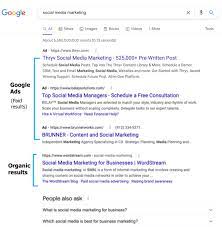Title: Navigating the Online Marketing Challenge: Strategies for Success
Introduction:
In today’s digital age, online marketing has become an essential tool for businesses to reach their target audience and drive growth. However, with the ever-evolving landscape and fierce competition, it is no secret that online marketing can pose significant challenges. In this article, we will explore some common hurdles faced by marketers in the digital realm and discuss effective strategies to overcome them.
Identifying the Right Target Audience:
One of the fundamental challenges in online marketing is identifying and understanding your target audience. Without a clear picture of who your ideal customers are, it becomes difficult to tailor your marketing efforts effectively. To tackle this challenge, conduct thorough market research and employ analytics tools to gain insights into consumer behavior. Refine your buyer personas based on demographics, interests, and online behavior to create targeted campaigns that resonate with your audience.
Building Brand Awareness:
Establishing a strong brand presence amidst the noise of the internet can be daunting. To overcome this challenge, focus on creating compelling content that showcases your expertise and value proposition. Leverage social media platforms to engage with your audience, share valuable insights, and build a community around your brand. Collaborate with influencers or industry experts to extend your reach and credibility.
Staying Ahead in SEO:
Search Engine Optimization (SEO) remains crucial for driving organic traffic to your website. However, search engine algorithms are constantly evolving, making it challenging to maintain a high ranking in search results. Stay updated with SEO best practices and leverage keyword research tools to optimize your website content effectively. Create valuable and shareable content that attracts backlinks from reputable sources.
Adapting to Social Media Algorithms:
Social media platforms play a vital role in online marketing strategies; however, keeping up with their ever-changing algorithms can be overwhelming. To navigate this challenge, stay informed about platform updates and algorithm changes by following industry blogs and attending webinars. Engage with your audience consistently, post relevant content, and use data analytics to understand what works best for your target audience.
Measuring ROI:
Measuring the return on investment (ROI) of online marketing efforts can be challenging due to the complexity of tracking multiple channels and attributing conversions accurately. Implement robust analytics tools that provide insights into user behavior, conversion rates, and campaign performance. Set clear goals and track key performance indicators (KPIs) to evaluate the effectiveness of your marketing campaigns.
Conclusion:
While online marketing presents its fair share of challenges, adopting the right strategies can help businesses overcome them successfully. By understanding your target audience, building a strong brand presence, staying updated with SEO practices, adapting to social media algorithms, and measuring ROI effectively, you can navigate the online marketing challenge with confidence. Embrace the ever-changing digital landscape as an opportunity for growth and innovation, and watch your business thrive in the online realm.
Frequently Asked Questions About Online Marketing Challenges
- What are the challenges encountered with digital marketing?
- What is the biggest challenge for online marketing?
- What is Google Online Marketing Challenge?
- What are the risks of online marketing?
What are the challenges encountered with digital marketing?
Digital marketing, while highly effective, presents several challenges that marketers often encounter. Here are some common challenges faced in the realm of digital marketing:
- Increased Competition: With the rise of digital platforms, the online marketplace has become increasingly crowded. Businesses are vying for attention from the same target audience, making it challenging to stand out and capture their attention.
- Adapting to Algorithm Changes: Social media platforms and search engines frequently update their algorithms, impacting how content is displayed and distributed. Marketers need to stay updated with these changes and adjust their strategies accordingly to maintain visibility and reach.
- Targeting the Right Audience: Inaccurate targeting can lead to wasted resources and ineffective campaigns. Identifying and reaching the right audience requires thorough research, data analysis, and a deep understanding of consumer behavior.
- Building Brand Awareness: Establishing a strong brand presence in a saturated digital landscape can be difficult. Cutting through the noise requires consistent branding efforts, compelling content creation, engagement with customers, and strategic partnerships or collaborations.
- Managing Online Reputation: Online reputation management is crucial in today’s interconnected world. Negative reviews or comments can quickly spread across various platforms, potentially damaging a brand’s image. Marketers must monitor online conversations closely and respond promptly to maintain a positive reputation.
- Measuring ROI: Determining the return on investment (ROI) for digital marketing efforts can be complex due to multiple touchpoints along the customer journey. Accurately attributing conversions to specific campaigns or channels requires advanced analytics tools and tracking mechanisms.
- Data Privacy Concerns: As data collection becomes more prevalent in digital marketing, privacy concerns have gained prominence among consumers. Marketers must navigate privacy regulations and ensure ethical data handling practices while maintaining personalized marketing approaches.
- Ad Fatigue: Consumers are bombarded with numerous ads daily across various platforms, leading to ad fatigue or banner blindness. Creating engaging and relevant content that resonates with the target audience becomes crucial to combat this challenge.
- Keeping Up with Technology: The digital landscape is constantly evolving, with new technologies and platforms emerging regularly. Marketers need to stay updated with the latest trends, tools, and techniques to remain competitive and leverage emerging opportunities.
- Balancing Automation and Personalization: While automation streamlines marketing processes, it can sometimes lead to a loss of personalization. Finding the right balance between automation and personalized communication is essential for building meaningful connections with customers.
By recognizing these challenges, marketers can proactively develop strategies and adapt their approaches to overcome them successfully in the dynamic world of digital marketing.
What is the biggest challenge for online marketing?
One of the biggest challenges for online marketing is the ever-increasing competition and saturation in the digital space. With more businesses recognizing the importance of online marketing, it has become increasingly difficult to stand out and capture the attention of target audiences. The abundance of content and advertisements vying for users’ attention can make it challenging to cut through the noise and make a lasting impression.
Additionally, consumer behavior and preferences are constantly evolving, making it crucial for marketers to stay updated with the latest trends and adapt their strategies accordingly. The rapid pace of technological advancements further adds to the challenge, as new platforms, tools, and algorithms emerge regularly.
Furthermore, measuring the return on investment (ROI) accurately remains a significant challenge in online marketing. Tracking conversions across multiple channels, attributing them correctly, and determining which marketing efforts are driving results can be complex.
However, despite these challenges, businesses can overcome them by employing effective strategies such as targeted audience research, creating compelling content, leveraging data analytics tools for insights, staying informed about industry trends, and continuously adapting their approach to meet evolving consumer needs.
What is Google Online Marketing Challenge?
The Google Online Marketing Challenge (GOMC) is an annual global competition organized by Google. It provides students from around the world with an opportunity to gain practical experience in online marketing and advertising. The challenge involves creating and managing online advertising campaigns using Google Ads, with the goal of driving real results for a business or non-profit organization.
Teams of students, guided by a faculty advisor, participate in the competition. They are assigned a real client and are tasked with developing a comprehensive digital marketing strategy to help achieve the client’s objectives. This includes conducting market research, identifying target audiences, creating compelling ads, optimizing campaign performance, and analyzing data to make informed decisions.
Throughout the challenge, students have access to various resources and tools provided by Google to enhance their learning experience. They can also seek guidance from industry experts through discussion forums and webinars.
The GOMC not only offers valuable hands-on experience in digital marketing but also encourages teamwork, critical thinking, and problem-solving skills. Participants gain insights into industry best practices and learn how to leverage online advertising platforms effectively.
At the end of the competition, teams submit a summary report detailing their campaign strategy, implementation process, and outcomes achieved. Google evaluates these reports based on criteria such as campaign structure, optimization techniques used, creativity in ad creation, and overall performance.
Winning teams receive recognition from Google along with prizes that may include certifications, monetary rewards, or invitations to attend industry events. However, regardless of winning or not, all participants gain valuable knowledge and practical skills that can boost their career prospects in the field of digital marketing.
The Google Online Marketing Challenge serves as an excellent platform for students to apply theoretical concepts learned in classrooms to real-world scenarios. It fosters innovation and prepares them for future roles in the dynamic realm of online advertising.
What are the risks of online marketing?
Online marketing, like any other business endeavor, comes with its own set of risks. Here are some common risks associated with online marketing:
- Privacy and Security Risks: Online marketing involves collecting and storing customer data, which can be susceptible to cyber threats and data breaches. Protecting customer information is crucial to maintain trust and avoid legal consequences.
- Reputation Management: The internet provides a platform for customers to voice their opinions and experiences publicly. Negative reviews or feedback can harm a company’s reputation if not addressed promptly and effectively.
- Ad Fraud: Online advertising is vulnerable to ad fraud, where fraudulent activities such as click fraud or impression fraud artificially inflate ad metrics. This can lead to wasted advertising budgets and skewed campaign performance.
- Compliance and Legal Issues: Online marketers must adhere to various regulations such as data protection laws, anti-spam laws, and consumer protection regulations. Failure to comply with these regulations can result in legal consequences and damage the company’s reputation.
- Competition and Market Saturation: The online marketplace is highly competitive, making it challenging for businesses to stand out among their competitors. Market saturation can lead to increased advertising costs and difficulty in reaching target audiences effectively.
- Technology Dependencies: Online marketing heavily relies on technology platforms such as search engines, social media platforms, or email service providers. Any changes or disruptions in these platforms can impact marketing campaigns or access to target audiences.
- Return on Investment (ROI): Achieving a positive ROI from online marketing efforts can be challenging due to factors like increased competition, changing algorithms, or ineffective strategies. Measuring the success of campaigns accurately is crucial for optimizing marketing spend.
- Ad Blocking: The rise in ad-blocking software poses a risk for businesses relying on display ads as part of their online marketing strategy. This reduces the visibility of ads and limits reach to potential customers.
To mitigate these risks, businesses should prioritize implementing robust security measures, maintaining transparency and ethical practices, monitoring online reputation, staying informed about industry regulations, diversifying marketing channels, and regularly evaluating and adjusting strategies to maximize ROI.




